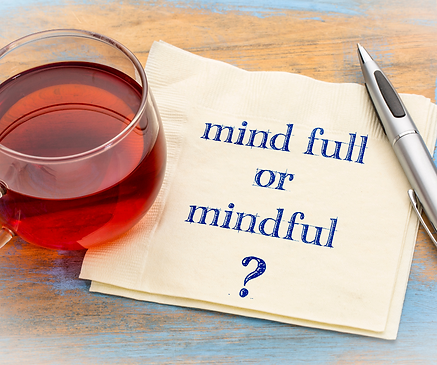

Clear Mind Directive CMD Counselling & Consultancy Services
What Is Dialectical Behaviour Therapy (DBT)
What Is Dialectical Behaviour Therapy (DBT)
Dialectical behaviour therapy (DBT) is a modified type of cognitive behaviour therapy (CBT). Its main goals are to teach you how to live in the moment, develop healthier ways to cope with stress, regulate your emotions, and improve your relationships with others.
DBT was initially intended to treat individuals with suicidal ideation and then adapted for borderline personality disorder (BPD), also known as an Emotionally unstable personality disorder (EUPD), but it has been, since its discovery, modified to treat many other mental health conditions. It can help people who have difficulty with emotional regulation and those who exhibit self-destructive behaviour (these would include substance use disorders and eating disorders)
Our Full DBT Program
We offer a full, intense program that runs for six months
You will attend a weekly 2-hour group.
If you feel you need additional support, you have the option of including a 1-hour individual therapy session per week; this is an additional cost.
This is a total of 3 hour
All modules are discussed in detail below
Contact us to discuss if DBT is for you
Dialectical Behaviour Therapy Techniques
Dialectical Behaviour Therapy Techniques
Settings in which DBT is often used include:
- Group therapy is where the clients are taught behavioural skills in a group setting or environment.
- Individual therapy with a trained professional where the client's learned behavioural skills are adapted to their personal life challenges.
- Phone coaching in which clients can call the therapist between sessions receives guidance on coping with a tricky situation they are currently in.
We will now discuss the strategies and techniques that are used in DBT.

Core Mindfulness
Core Mindfulness
One major benefit of DBT is the development of mindfulness skills. Mindfulness helps you focus on the present be in the current moment and live in the here and now. This helps you pay attention to what is happening inside you (your thoughts, feelings, sensations, and impulses) as well as using your senses to tune in to what's happening around you (what you see, hear, smell, and touch) in a non-judgemental way that is kind and gentle.
Mindfulness skills help you slow down and focus on using healthy coping skills when you are in the midst of emotional pain. The strategy can also help you stay calm and avoid engaging in automatic negative thought patterns and impulsive behaviours that are not helpful or healthy.
Sample Exercise: Observe Mindfulness Skills
Pay attention to your breath. Take notice of the sensation of inhaling and exhaling. Watch your belly rise and fall as you breathe.
Distress Tolerance
Distress Tolerance
Distress tolerance skills help you accept yourself and your current situations. DBT teaches several techniques for helping a crisis, these include:
- Self-soothing
- Improving the moment
- Distraction
- Thinking of the pros and cons of not tolerating distress
Distress tolerance techniques help prepare you for intense emotions and empower you to cope with them with a more positive long-term outlook.
Sample exercise: Putting your body in charge
Run up and down the stairs.
If you are sitting down, get up and walk around.
If you are inside, go outside.
The idea is to distract yourself by allowing your emotions to follow your body.
.png)

Emotion Regulation
Emotion Regulation
Emotion regulation lets you navigate powerful feelings in a more effective way. the skills you learn will help you to identify, name, and change your emotions.
when you can recognise and cope with intense negative emotions (for example, anger), it reduces your emotional vulnerability and helps you have a more positive emotional experience.
Sample exercise: Opposite action
Identify how you are feeling and do the opposite. If you are feeling sad and want to isolate and withdraw from family and friends, instead make plans to see your loved ones.
Interpersonal Effectiveness
Interpersonal Effectiveness
Interpersonal effectiveness helps you become more assertive in a relationship (for example, expressing your needs and being able to say "no") while keeping a relationship positive and healthy. You will learn to listen and communicate more effectively, deal with challenging people, and respect yourself and others.
Sample exercise: GIVE
Use the GIVE acronym to help improve relationships and develop positive communication.
- "G" is for Gentle. Do not attack, threaten, or judge others.
- "I" is for Interest. Show interest with good listening skills ( do not interrupt someone else when they are speaking.
- "V" is for Validate. Acknowledge the other person's thoughts and feelings.
- "E" is for Easy. Have an easy attitude (smile often and be light-hearted)


Stages of DBT
Stages of DBT
Dialectical Behaviour Therapy is also divided into four stages of treatment.
- Stage One: During the beginning of treatment, the most serious and self-destructive behaviours are the first things addressed, this may include issues such as self-injury or suicidal behaviours
- Stage Two: Next, treatment moves on to addressing issues that affect your quality of life, such as your emotional regulation skills, ability to tolerate distress, and your interpersonal effectiveness.
- Stage three: The next step is to focus on issues relating to self-esteem and interpersonal relationships.
- Stage Four: At this point, treatment is focused on helping you get the most out of your life, including finding ways to experience greater happiness, strengthen your relationships and pursue your life goals.
What Dialectical Behavioural Therapy Can Help With
What Dialectical Behavioural Therapy Can Help With
DBT was developed in the late 1980s by Dr. Marsha Linehan and her colleagues when they discovered that CBT alone did not work as well as expected in clients with borderline personality disorders (BPD). Dr. Linehan and her team added techniques and developed a treatment to meet the unique requirements of these individuals.
Though developed with BPD in mind, DBT might also be an effective treatment for:
- Generalised anxiety disorder (GAD)
- Substance Use Disorders
- Attention-deficit/hyperactivity disorder (ADHD)
- Major depressive disorder (including treatment-resistant major depression and chronic depression)--
- Bipolar Disorder
- Obsessive-compulsive disorder (OCD)
- Post-traumatic stress disorder (PTSD)
- Eating disorders
- Non-suicidal self-injury
- Suicidal behaviour
Benefits of Dialectical Behavioural Therapy
Benefits of Dialectical Behavioural Therapy
In DBT, the client and therapist work to resolve the apparent contradiction between self-acceptance and change to bring about positive changes in the individual treatment. Part of this process involves offering validation, which helps them become more likely to cooperate and less likely to experience distress at the idea of change.
The practice, the therapist validates that an individual's actions "make sense" within the context of their individual experiences without necessarily agreeing that the actions are the best approach to solving a problem.
Each therapeutic setting has its own structure and goals, but the characteristics of DBT can be found in group skills training, individual psychotherapy, and phone coaching.
- Acceptance and change: You will learn strategies to accept and tolerate your life circumstances, emotions, and yourself. you will also develop skills that can help you make positive changes in your behaviours and interactions with others.
- Behavioural: You will learn to analyse problems or destructive behaviour patterns and replace them with healthy and effective ones.
- Cognitive: You will focus on changing thoughts and beliefs that are not effective or helpful.
- Collaboration: You will learn to communicate effectively and work together as a team.
- Skill sets: You will learn new skills to enhance your capabilities.
- Support: You will be encouraged to recognise your positive strengths and attributes and develop and use them.
Effectiveness of Dialectical Behaviour Therapy
Effectiveness of Dialectical Behaviour Therapy
Because this approach to therapy can help you successfully improve your coping skills, you are able to develop effective ways to manage and express strong emotions, Researchers have also found that DBT is effective regardless of a person's age, sex, gender identity, and race/ethnicity.
- For DBT: Studies have found that DBT is effective in the treatment of borderline personality disorder (BPD) and in reducing suicide risk in individuals with BPD. One study found that after a year of treatment, more than 75% of people with BPD no longer met the diagnostic criteria for the condition.
- For suicidal behaviour: Another study found that interventions that incorporated skills training as a treatment component appeared to be more effective in reducing suicidality than DBT without skills training.
- For other conditions: Most DVT research has focused on its effectiveness for people with borderline personality disorder who have thoughts of suicide and self-harm, but the method could also be a successful treatment for other mental health conditions. For example, research has found that this type of therapy also is effective in the treatment of PTSD, depression, and anxiety.
Research has also suggested that DBT may also be useful in the treatment of children with disruptive mood dysregulation disorder.
The Things to Consider About Dialectical Behaviour Therapy
The Things to Consider About Dialectical Behaviour Therapy
DBT requires a significant commitment of time. In addition to regular therapy sessions, clients are also required to do homework to work on skills outside of the individual, group, and phone counselling sessions. This may pose a challenge for people who have difficulty keeping up with these assignments on a regular basis. If a client is struggling, the therapist may use part of the individual session to help clients with the group homework requirements.
Generally, a full DBT program will consist of 2 hours of group therapy a week and 1-hour individual therapy per week. A commitment of 3 hours total a week. For coaching counselling, this is a bank of hours you can use when you have a crisis situation you need guidance with. These bank hours will vary over the duration of the program.
Practising some of the skills may also be challenging for some clients. at various stages of treatment, clients explore traumatic experiences and emotional pain, which may be upsetting.
Can You Do Dialectical Behaviour Therapy on Your Own?
DBT is complex, and it is generally not something that people can do on their own without the guidance of a trained therapist.
However, there are some things you can do on your own to help you develop new coping skills. For example, mindfulness, breathing exercises, and progressive muscle relaxation and all skills you can utilise to improve your ability to tolerate distress (therefore, we recommend Core DBT Mindfulness for all individuals to do as a minimum).
It is important to remember that this should not be used in place of professional help. If you are struggling with a mental health condition, it is always best to seek out the help of a qualified mental health professional.
How To Get Started with Dialectical Behaviour Therapy
How To Get Started with Dialectical Behaviour Therapy
The best way to find out if DBT is right for you is to talk with a professional who is trained in the method. They will evaluate your symptoms, treatment history, and therapy goals to see if DBT might be a good fit.
If you or a loved one might benefit from DBT, it is important to talk to a mental health professional who is trained in the approach. That said, it is not always easy to find DBT therapists. Here at Clear Mind Directive, we have a mental health practitioner who has 14 years of experience working with DBT and clients with diagnoses of BPD, GAD, Depression, PTSD, and childhood trauma.
If you would like to find out more about our DBT Life and DBT Mindfulness group, email or please call 0460 659 893 and speak to Cynthia, our mental health practitioner/therapist.
If you are having suicidal thoughts, contact the Mental Health Emergency Response Line (MHERL)
1300 555 788 (Perth WA) or 1800 676 822 (Peel Region).

